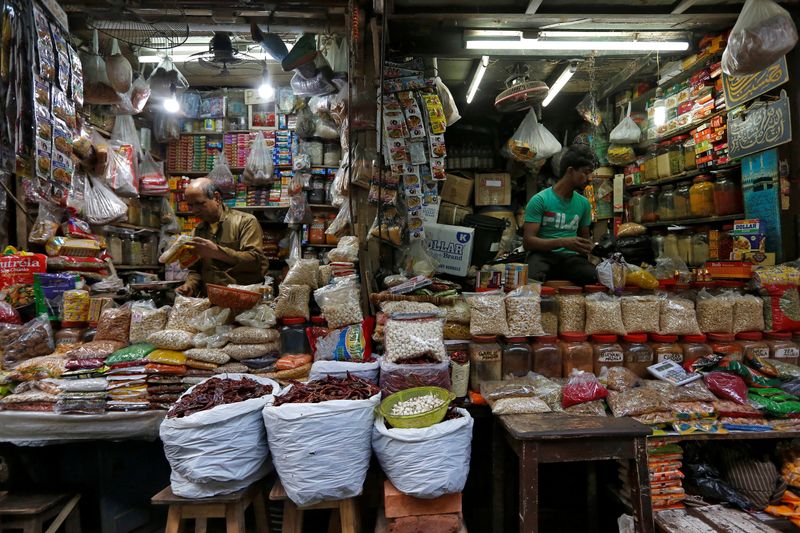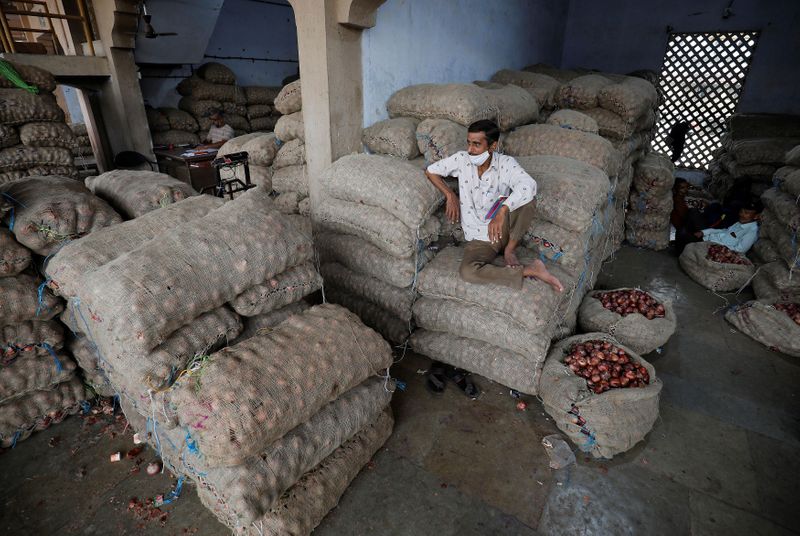By Manoj Kumar and Sunil Kataria
NEW DELHI (Reuters) - For Delhi resident Suman Milind, rising prices in India are casting a long shadow this year over the upcoming Diwali festival of lights.
The 33-year-old homemaker is tightening her purse strings and altering her spending habits, thanks to soaring costs of fuel, transport and many manufactured items, coupled with stagnant incomes due to the pandemic.
"Earlier we used to get four or five boxes of dry fruits during festivals, but now we hardly get one or two. Because of the high prices," said Milind, adding that her family has reduced spending on food too by cutting back on meat to just once a week compared to several times a week earlier.
Millions of Indian households are facing similar strains on their budgets ahead of Diwali, which this year falls in early November and marks the country's busiest shopping season for consumer goods.
Many are foregoing big-ticket purchases such as television sets and jewellery this festive season, according to half a dozen people Reuters spoke to and a consumer survey by Mumbai-based consultancy Axis My India, threatening to slow an economy recovering strongly from the worst of COVID-19.
Pump prices of petrol and diesel are up nearly 35% from a year ago and cooking gas by more than 50%, severely hitting more than three-quarters of households, economists said.
"The sky-rocketing prices of petrol, cooking gas are unbearable when our earnings are still down by nearly 30% from the pre-pandemic period," said Sultan Singh Tomar, 53, who supplies incense sticks and kitchenware to shops in New Delhi on his scooter.
He said his petrol bill was up by 600 rupees ($8) from a year ago and refilling the cooking gas cylinder was costlier by 400 rupees.
Tomar is among millions of people working in the informal sector who dipped into savings during the pandemic and are now forced to pare back household spending.
For months India's consumer-price-based inflation stayed above the central-bank's comfort level of 6% driven by a rise in food prices.
In September the consumer price index eased to 4.35%, helped by a softening of food prices which make up nearly half of the index. Economists said that painted a better picture than what households are actually facing.
According to an October report by Axis My India on consumer spending trends, more than 88% of respondents in a survey said they will not be buying air conditioners, televisions, washing machines or jewellery this festival season and nearly half said they will make low-ticket purchases such as clothes.
There is not much that Prime Minister Narendra Modi's government can do to alleviate the pain as global crude oil prices hit a three-year high at $85 a barrel, piling up the pressure on a country that imports 80% of its oil.
Bidisha Ganguly, chief economist at industry chamber, Confederation of Indian Industries, said federal and state governments should cut fuel taxes, the highest among the major economies, as higher fuel prices posed a risk of building up of medium term inflationary pressures.
"(Otherwise) corporate earnings will be impacted in sectors where producers are unable to pass on the cost increases," she said, adding global shortages were already driving up commodity costs for many products.
REDUCED FOOTFALLS
Private economists have warned that annual wholesale-price-based inflation - a proxy for producers' prices - staying in double digits for sixth months in a row could further fuel inflationary pressures as companies pass on rising costs to consumers.
Already some retailers said rising raw material costs were impacting their sales.
"Our sales are not even half of what we used to have during the festival period," said Kawaljit Singh, who sells utensils from a shop in Chandani Chowk in the old quarter of Delhi.
He said a rise in prices of metals like steel and copper had pushed up prices of utensils, cookers, festival lighting and gift items by 15%-20% in the last four-five months.
Because of rising prices and other market uncertainties, Delhi-based company auditor Lalit Vats said his family had downgraded to non-branded products and visited the wholesale markets to hunt for bargains.

"Government can talk about easing of inflation, but people know that costs of every item has gone up," lamented his mother Anita Vats.
($1 = 75.0900 Indian rupees)
